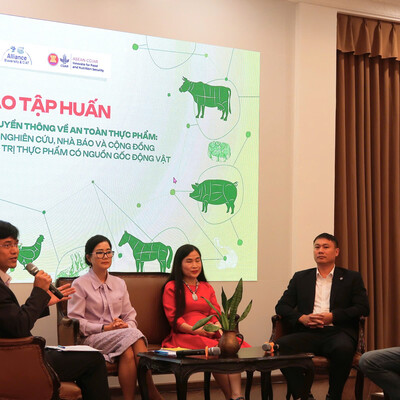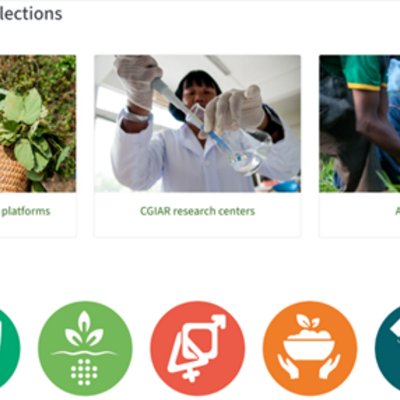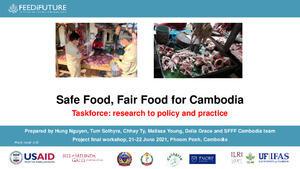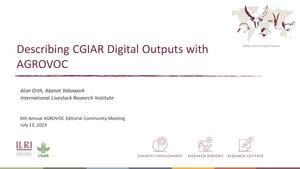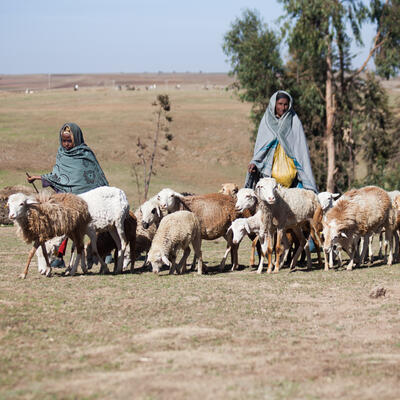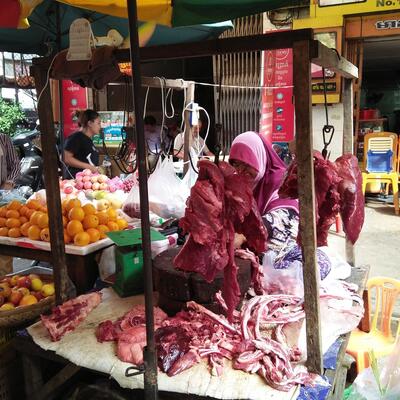
Illegal land sales imperil unique treasure—by Jimmy Smith
ILRI cattle at ILRI’s Kapiti Research Station (photo credit: Anne-Marie Shryer-Roy).
The following opinion piece was written by Jimmy Smith, director general of the International Livestock Research Institute (ILRI). and published in the Daily Nation (Kenya) on 15 January 2018.
In summary
- The vibrant and rapidly growing local livestock sector contributes more than 40 per cent of revenues and employs half of the labour force in Kenya’s agriculture industry.
- Now, the greedy actions of a few are threatening the future of many millions of people and decades of livestock research.
- Also lost in the lawless Kapiti land grab is that the Ilri station is a vital wildlife corridor and dispersal area for Kenya’s Southern Conservancy Area.
More than 30 years ago, scientists were finally making progress in developing vaccines against livestock diseases then killing animals owned by millions of poor people across Africa.
But they needed to test their vaccines in large, isolated, disease-free herds — and in the same dry rangeland conditions that are home to most of the continent’s cattle, sheep and goats.
In the 1980s, the Nairobi-based International Livestock Research Institute (Ilri) bought a large tract of dryland 60 kilometres southeast of Nairobi, near Machakos town.
The former Kapiti Plains Estate is generally too dry for growing crops but is perfect for livestock production. What is now the Ilri Kapiti Research Station quickly became a hub for livestock research and field testing of interventions.
The station has played a key role in developing a vaccine against tick-borne cattle disease East Coast fever, which kills a cow in Africa every 30 seconds, as it is in testing one against Rift Valley fever, which, besides cattle, also threatens 50 million people in East Africa.
Under threat
But this and other work is now under threat: There is a land grab under way at Kapiti, orchestrated by groups illegally selling plots on the property.
There is absolutely no land at Kapiti that is up for sale. Yet late last year, people conned into believing they could buy land on Ilri’s research station actually began building illegal structures there.
Over the past three decades, research at Kapiti has brought huge benefits to small-scale farmers and herders across Africa. For example, work at Kapiti has helped to increase the productivity of Kenya’s many small-scale milk producers and sellers, as well as improve the quality of the milk.
Just one of Ilri’s dairy research projects generates Sh3.3 billion to the country annually while also increasing household incomes, improving family nutrition and providing thousands of jobs.
The non-profit Ilri is part of a global consortium of agricultural research institutes known as CGIAR. Its funding, including in-kind support from Kenya, comes from national governments, international institutions and philanthropy and is conducted entirely for the benefit of poor families.
At the station, the scientists also develop livestock breeds and feeds that enable poor farmers worldwide to adapt to more stressful conditions caused by climate change.
Valuable asset
Ultimately, the work at Ilri helps many because nearly a billion people rely on livestock as their most valuable asset and a route out of poverty.
Livestock present many big opportunities for Kenyan smallholders, which are growing as demand for milk, meat and eggs increases.
The vibrant and rapidly growing local livestock sector contributes more than 40 per cent of revenues and employs half of the labour force in Kenya’s agriculture industry.
Livestock are deeply embedded in the everyday lives of most Kenyans. This deep connection is one reason Ilri has its home in Kenya.
It was at Ilri that a Kenyan economist invented an affordable way for poor local pastoral herders to insure their livestock against drought — an approach that the government recently adopted and is now being taken up by Ethiopia and other developing regions.
Also lost in the lawless Kapiti land grab is that the Ilri station is a vital wildlife corridor and dispersal area for Kenya’s Southern Conservancy Area. The estimated 12,000 head of wild mammals inhabiting Kapiti, for instance, are critical to the survival of Nairobi National Park as a functioning wildlife ecosystem.
Now, the greedy actions of a few are threatening the future of many millions of people and decades of livestock research.
Dr Smith is director-general of the International Livestock Research Institute (Ilri). J.Smith@cgiar.org.
Read the article as published in the Daily Nation: Illegal land sales imperil unique treasure, by Jimmy Smith, 15 Jan 2018.
See also:
Citizen Digital: Keep off ILRI land in Kapiti Plains, grabbers told, 15 Jan 2018.
The Star: Don’t be duped into buying ILRI land, warns Alfred Mutua, 15 Jan 2018.







